As told by Joelle Lieberman
It doesn't matter what background you come from — UVU is a place for everyone.
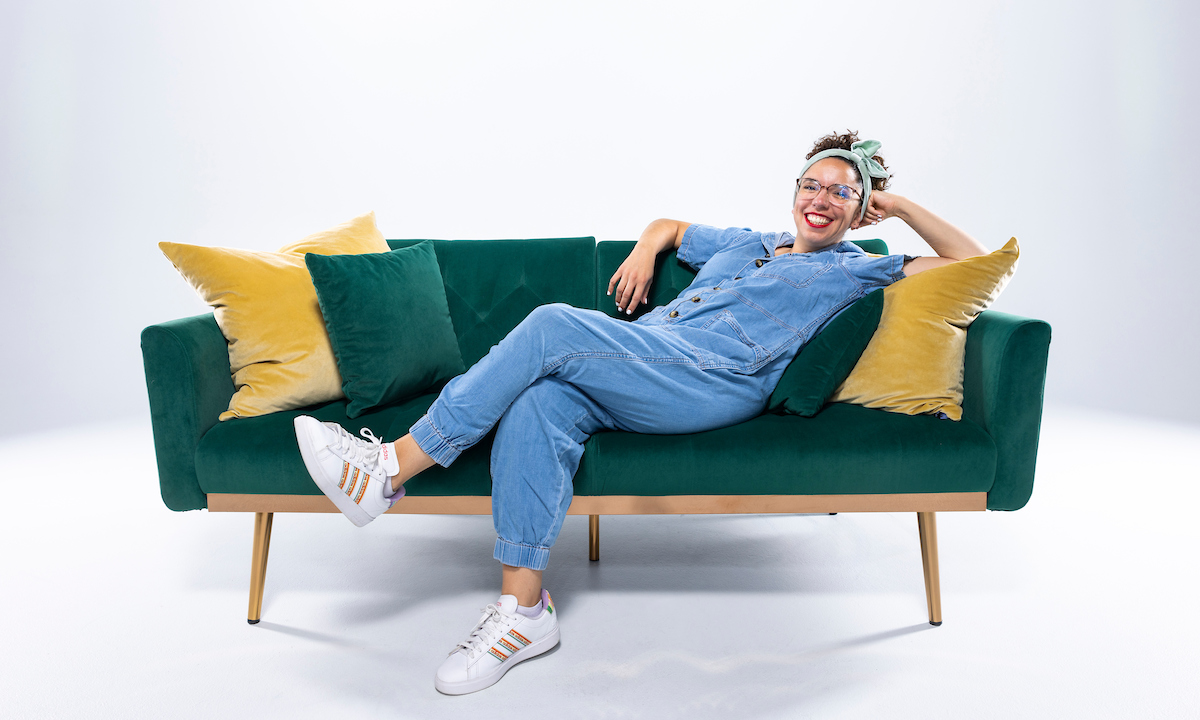
Photo by Emily Muñoz
I grew up in an isolated community. They were very self-sufficient. I learned how to take care of my neighbor. I learned the importance of hard work and self-sustainability. I didn't have television. We would maybe watch a movie on Fridays, but it was very specific what we could and could not watch and what we could and could not listen to. I grew up in a lot of poverty, so hunger was a problem a lot of the time. I was curious, and I was a happy child, and I think that's what helped me through all of that.
My mom wanted us to read and learn, and she also wanted us to stay in her religion. And it was a high-conformity, high-demand religion. People from this community who go to college don't usually stay in the community. But I still feel like my mom supported me going to school.
I came to UVU because I wanted an education; even though I didn't know what an associate degree was, I didn't know what a bachelor's degree was. But I knew getting an education was my key to freedom.
I don't agree with how I grew up, but they're hardworking people, they're kind, and they look out for each other. If the apocalypse came, you would want to be with them. And there's a really beautiful world out of there that I never knew. There are things that I'm still discovering to this day that I didn't know existed [before].
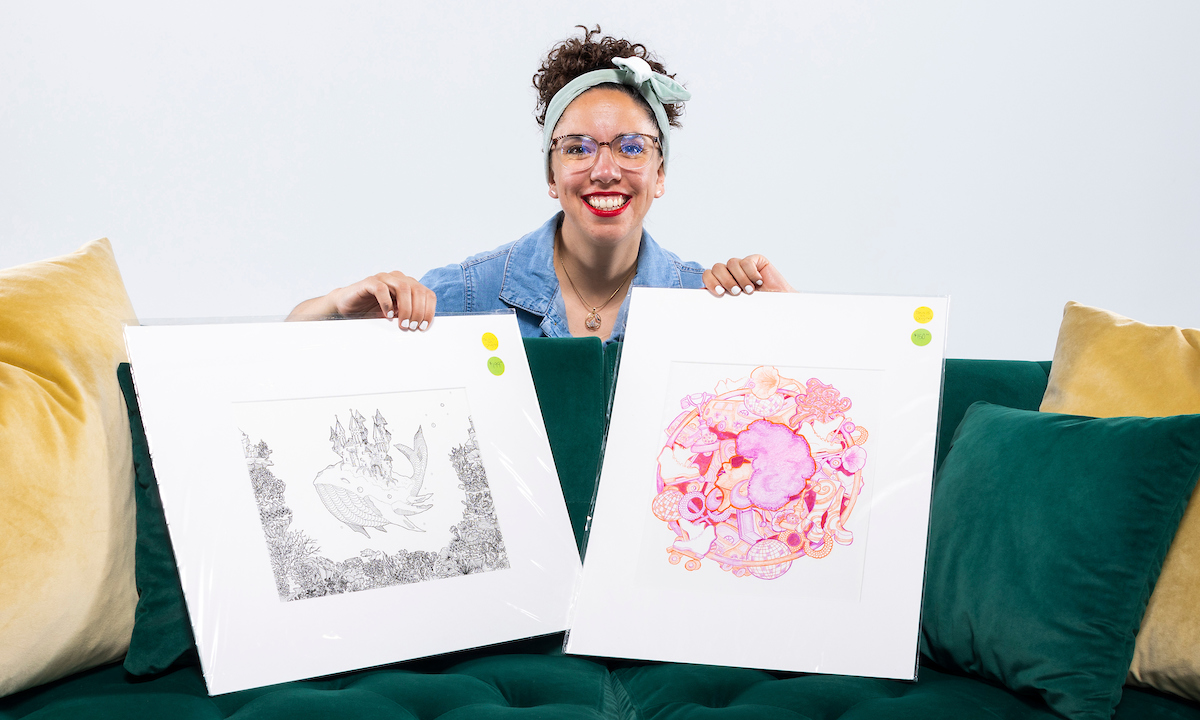
I had only, like, an eighth-grade level of education, maybe less [before UVU]. In a lot of the general education classes, I was completely lost. They were a review for a lot of the other students, but I didn't know what an atom was. I didn't know about geography, geology, or any of the sciences or math. And that was overwhelming.
Another challenge was that I thought you just took classes, and that was going to give me the key to success. I didn't understand there are specific classes you take to get an associate degree and then specific classes you take to get a degree in whatever you choose. So that was a challenge. It was overwhelming.
Even though I'm a citizen of the United States, I felt like a foreigner [here] because everything was so different from how I had been raised. I turn that into a strength now — that I appreciate things that other people take for granted. And I love people because I wasn’t allowed to associate with them before. And I appreciate differences. I think it's very human to want to be surrounded by people who are like you. But now, I feel comfortable and fluid in different cultures and with different types of people because it's all new and beautiful. It's a real strength for me.
I feel like it's socially acceptable and almost expected for people to complain about being in school. But it’s a huge privilege to be here. I think people don't appreciate their ability to choose. If you're in a high-demand religion [like I was] that tells you that there's only one way to live and one way to dress and one way to be, then that's suffocating. I do not think that you can really appreciate your ability to choose until you don't feel like you have it.
I see beauty in things that would be mundane for other people. So, an example of that would be people complaining about homework, and I'm like, “You're crazy. You're getting an education. You get to learn about how the world works. You get to learn about ecosystems, communication styles, and cultures across the world. And you're complaining about homework?”
There is something powerful and beautiful in the ability to choose how you live your life. I feel more connected than I ever did before, and that's because I get to choose how I live my life.
My experience has been that coming to college has taught me how to think [for myself]. It has taught me to question. It's taught me to think critically. And now, when people are sharing ideas, I'm like, “Wow, there are so many flaws in the way that you're thinking.” And I never could see that before.
Coming to college taught me how to think, not what to think. Using the scientific method, learning how to look at sources. I didn't know before that there was a way to find out what is true — learning about what a logical fallacy is, being able to recognize that in other people's thinking, and being able to recognize it in my own thinking.
I learned how to look at information and question it and not just assume, “Oh, because that person is influential, they’re right,” or “Because that person's in a position of power, that makes them correct.” Coming to college has taught me how to question the information that I'm receiving so that I don't just go with whims or “This was said by an expert.” [Now, it’s], “Where did the expert get their information?”
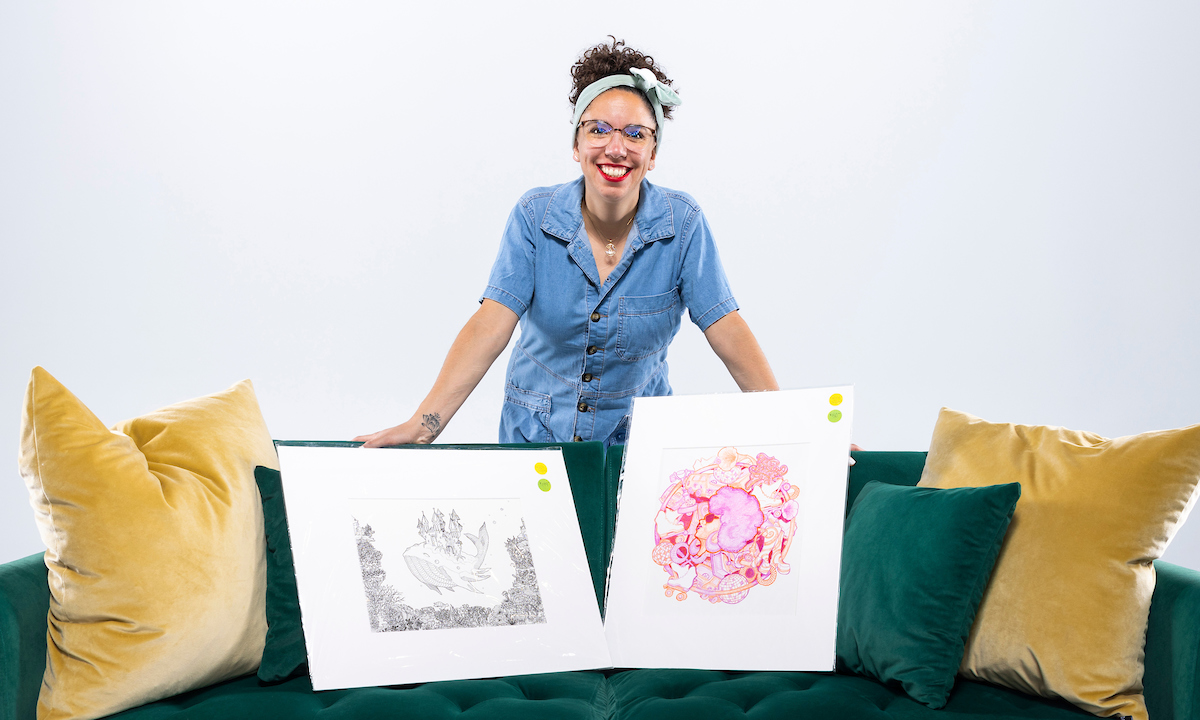
There was a lot of trial and error before I landed on some specific values that are very important to me, specific ways of being in the world that are crucial to my well-being. And my well-being affects the well-being of the people I'm connected to. That has taken years to develop.
When you’re first leaving [a strict environment], it's chaos. It's complete chaos. And up is down, left is right, and right is wrong. I would hope that anyone who has experienced that would have a lot of self-compassion because it's going to take time to figure it all out again. I'm still figuring it out and finding people who are safe to talk to about worries and concerns.
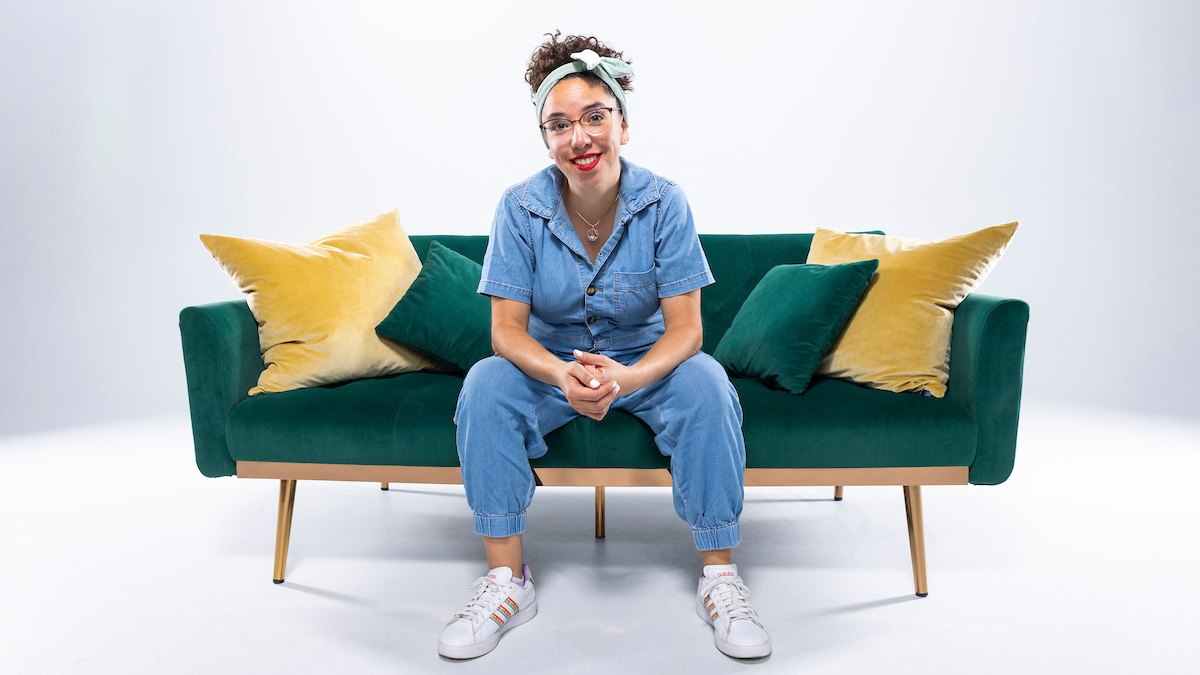
When choices have been taken away from you, I have found that it's important to remind yourself that you have choices. One of the ways that I do that is with my red lipstick because [that used to be] a very risky thing to do. It still gives me butterflies to put on red lipstick. But it also makes me feel super proud and like I own my choices. It doesn't have to be like a huge “I'm going to go out and shave my head to prove that I have choice!” But I think that it is important, when you've had your choices restricted, to do small things to remind yourself [you] have a choice. And I do that now, with certain clothes that I wear, earrings — those things help remind me I have a choice.
I was very careful about choosing which professors I confided in, saying, “Hey, I have no idea what we're talking about in class.” [They] were super helpful. I found mentors who could teach me about the world that were safe for me. Being able to say, “I don’t know these things,” is a humbling place to be. And it's also really freeing because then you open yourself up to all sorts of possibilities.
Coming to college with an eighth-grade education is a leap. Honestly, I thought I was just stupid. I have a brother who's brilliant and who [also went to college]. But he even said his first couple years were him catching up on what he didn't know. When professors found out where I was coming from, they were so understanding, especially in the general education realm.
I did not want [professors] giving me a free pass. That’s not who I was, so I wasn’t coming to them saying, “Hey, poor me, I'm not well educated. I don't know anything. Please just let me pass your class.” I was like, “Teach me something! Teach me something about this world!” I've gotten comfortable with not knowing. Sometimes you just have to be okay not knowing and ask the questions anyway.
I had this brilliant professor, Professor Roger Sarkis, and he would let me ask any questions about the world that I wanted. I would email him in between classes, and he would send me YouTube videos and links to the things that I was asking about. I was asking about gravity and atoms and the nervous system. And I learned that there was, like, an atmosphere over the planet, like this little bubble thing protecting us! I mean, this stuff is mind-blowing!
So, some of the professors would meet with me one-on-one in between classes. I went to the tutoring lab. I would latch on to something in a lecture that I was curious about, and I would do a deep dive into that. They would let me write reports on it or ask more questions. Some people might call that extra [work]. But to me, I was just getting my education. I wanted to know how this world works. So, my professors at UVU...I love them.
I’d thought, because [UVU] is one of the biggest schools in Utah, that I was going to be in a class with 100 students, like, “The professor's not even going to know my name.” But that has not been the case for any of my classes. My professor always knows who I am. I show up, I ask questions, and I do the work. You’ve got to do the work outside of class, but it helps when you've got professors who care.
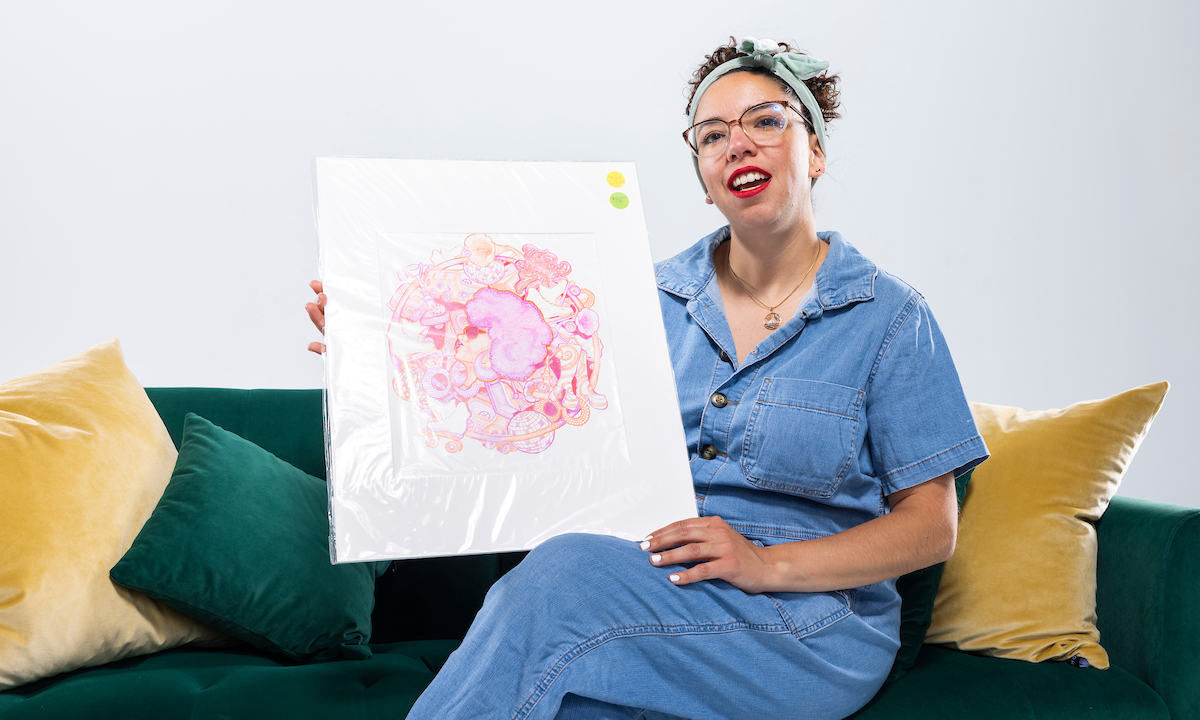
I was encouraged to draw [when I was young]. My parents had just separated. I was bored, sad, and scared. And I found refuge in the library, and I was looking through their drawing books, and I found books on Lee Hammond. They are really good about teaching people to draw realism. I started practicing ears, noses, eyeballs, and faces, and then I won a competition in high school for drawing. It got to a point where it was becoming almost too perfectionistic, and I stopped drawing for almost a decade. I started picking it up again when I started finding myself again. I've always had an eye for balance and beautiful things. I like to make spaces beautiful. I feel like my mom encouraged me to make beautiful things.
Art is important to me because it's a simple way to talk about difficult things. I want to work in film. I'm studying illustration. Entertainment and design is the program I want to get into. Watching films has taught me about my world, even if it's sci-fi or fantasy. Even if it's not based on a true story, film has taught me a lot about humanity, about suffering and joy and difficult topics. I want to use art to help tell difficult stories. And I don't know what that will look like in the future. I just know that that's my goal, and I'm honing my craft right now.
So, when people are like, “What's your medium?” I'm like, “All of it. I love all of it.” I don't think I've been given one project that I'm like, “I hate this. I don't want to do it.” It's all like, “Look how these colors mix. Look how this tool makes that kind of line.” It's all about honing my craft so that when those doors open up for me to participate in storytelling through film, then I'm ready for it.
Right now, I really love doing line work. Some of my stuff right now is really fantastical, like whales with castles on their back and surrounded by a coral reef. I like to draw realism, but I also like stretching reality. I like the veins of curiosity and wonder and whimsy. Whimsy is important to me — the things that are out of this world, things that make us feel bigger on the inside than the outside.
UVU is a place for everyone. It doesn't matter what background you come from. I am the most unlikely person to have made it into college. Here I am. It's a place for everyone. You belong here.